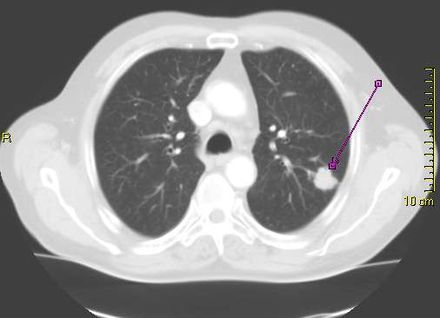If you have a loved one who needs medical care for a health condition, you might struggle to find the time to provide this care yourself or find adequate carers to visit your loved one at home. Therefore, thinking about care homes can be a useful step. If you or your loved one is unsure about the idea, here are some of the medical benefits that living in a care home can offer.
Professional Carers
You may have been providing at-home care for your loved one for a while now, but in a care home, there are professionally trained carers who have all the necessary skills and techniques to assist every resident. This gives both the resident and the resident's family peace of mind that they are receiving high-quality care.
Nursing Staff
Having nursing staff always available makes a care home a far safer environment for someone with a medical condition that needs regular monitoring and assistance. Many care homes employ skilled nurses to give treatments and medications according to residents' needs. The level of planning and consideration that goes into this is usually far superior to any other setting.
(more…)
If you find yourself in an emergency situation, then it is important that you have a fully functioning first aid kit to hand. This should be a small kit filled with different supplies that will be helpful for various injuries and ailments.
The Importance of Contents
It is incredibly important that the contents of your first aid kit are of high quality and include everything you need – because without them, you will not be able to use the equipment to its fullest extent in an emergency, and you may lack crucial pieces.
You can buy complete first aid kits online that are already full of everything you need; however, you will have to keep a list of these supplies so that you can replenish your gear as and when you need to. As such, below, this article will discuss the most crucial components that should make up your first aid kit in more detail.
(more…)
Accidents & Violence, Author Interviews, Brigham & Women's - Harvard, Emory, JAMA, Race/Ethnic Diversity / 29.11.2022
Spike in Firearm Fatalities Differ Among Ethnic and Age Groups
MedicalResearch.com Interview with:
Chris A. Rees, MD, MPH
Assistant Professor of Pediatrics and Emergency Medicine
Research Director, Pediatric Emergency Medicine Fellowship
Emory University School of Medicine
Attending Physician, Children's Healthcare of Atlanta
Pediatric Research Scientist, CHAMPS, U.S. Program Office and
Eric W. Fleegler, MD, MPH, FAAP
Associate in Pediatrics, Division of Emergency Medicine
Director Sedation Service
Boston Children’s Hospital
Assistant Professor of Pediatrics and Emergency Medicine
Harvard Medical School
MedicalResearch.com: What is the background for this study?
Response: Rates of firearm fatalities in the United States have reached a 28-year high. Yet, an understanding of the specific demographic groups who have been most affected, and where in the United States these fatalities have occurred, has not been clearly described in the past.
(more…)
Sound healing is an alternative therapy that uses sound waves to heal the mind and body. This therapy is based on the belief that all matter is vibrating at a certain frequency and that disease or ill health occurs when the body’s natural frequency is out of alignment. Sound healing practitioners use a variety of tools, including singing bowls, gongs, and tuning forks, to restore the body’s natural frequency.
There are many benefits of sound healing, including reducing stress, promoting relaxation, improving sleep, and reducing pain. Sound healing can also be used to treat a wide range of conditions, such as anxiety, depression, PTSD, and addiction. If you are looking for a non-invasive way to improve your health and well-being, sound healing may be right for you.
(more…)
Alzheimer's - Dementia, Author Interviews, Nutrition / 26.11.2022
Study Finds Cognitive Decline Lowest in Those with Lots of Flavenols in Diet
MedicalResearch.com Interview with:
Thomas M Holland, MD, MS
Assistant Professor
Rush Institute for Health Aging
Rush College of Medicine & Rush College of Health Sciences
https://www.rushu.rush.edu/faculty/thomas-m-holland-md-ms
MedicalResearch.com: What is the background for this study?
Response: My late mentor Martha Clare Morris, ScD had published a manuscript investigating leafy green intake, and the nutrients found therein, and cognition. I wanted to take this thought a step further and investigate the potential association bioactives, found in vegetables, like leafy greens, has to cognition. Further, this is a continuation of the research I published in the green journal in 2020 associating flavonols to incident Alzheimer’s dementia. This study extends the understanding that flavonols are not only beneficial for the most detrimental outcome of Alzheimer’s dementia (in decreasing the risk), but also advantageous in mitigating components of the, clinical syndrome i.e. decreasing the rate of cognitive decline.
(more…)
Aging, Author Interviews, Brigham & Women's - Harvard, Dermatology, Heart Disease, Herpes Viruses, Stroke / 23.11.2022
Herpes Zoster: Persistent Increased Risk of Cardiac Event or Stroke After Shingles
MedicalResearch.com Interview with:|
Sharon G. Curhan, MD, ScM|
Director, CHEARS: The Conservation of Hearing Study
Channing Division of Network Medicine
Department of Medicine
Brigham and Women’s Hospital
Harvard Medical School
Boston, MA 02114
MedicalResearch.com: What is the background for this study?
Response: Herpes zoster, commonly known as “shingles,” is a viral infection that often causes a painful rash. Shingles can occur anywhere on the head or body. Shingles is caused by the varicella zoster virus (VZV), the same virus that causes chickenpox. After a person has chickenpox, the virus stays in their body for the rest of their life. Years and even decades later, the virus may reactivate as shingles. Almost all individuals age 50 years and older in the US have been infected with the varicella zoster virus and therefore they are at risk for shingles.
About 1 in 3 people will develop shingles during their lifetime, and since age is a risk factor for shingles, this number may increase as the population ages. The risk is also higher among individuals of any age who are immunocompromised due to disease or treatment. A number of serious complications can occur when a person develops shingles, such as post-herpetic neuralgia (long-lasting pain), but there was limited information on whether there are other adverse long-term health implications of developing shingles.
There is a growing body of evidence that links VZV, the virus that causes shingles, to vascular disease. VZV vasculopathy may cause damage to blood vessels and increase the risk of stroke or coronary heart disease. Although some previous studies showed a higher risk of stroke or heart attack around the time of the shingles infection, it was not known whether this higher risk persisted in the long term. Therefore, the question we aimed to address in this study was to investigate whether shingles is associated with higher long-term risk of stroke or coronary heart disease.
To address this question, we conducted a prospective longitudinal study in 3 large US cohorts of >200,000 women and men, the Nurses’ Health Study (>79,000 women), the Nurses’ Health Study II (almost 94,000 women) and the Health Professionals Follow-Up Study (>31,000 men), without a prior history of stroke or coronary heart disease. We collected information on shingles, stroke and coronary heart disease on biennial questionnaires and confirmed the diagnoses with medical record review. We followed the participants for up to 16 years and evaluated whether those who had developed shingles were at higher risk for stroke or coronary heart disease years after the shingles episode. The outcomes we measured were incident stroke, incident coronary heart disease [defined as having a non-fatal or fatal myocardial infarction (heart attack) or a coronary revascularization procedure (CABG, coronary artery bypass graft or percutaneous transluminal coronary angioplasty)]. We also evaluated a combined outcome of cardiovascular disease, which included either stroke or coronary heart disease, whichever came first.
(more…)
Author Interviews, JAMA, Obstructive Sleep Apnea, Sleep Disorders, USPSTF / 23.11.2022
USPSTF: More Evidence Needed Before Routine Screening of Adults Can Be Recommended
MedicalResearch.com Interview with:
Martha Kubik, Ph.D., R.N.
Professor, School of Nursing
College of Health and Human Services
George Mason University
Member, U.S. Preventive Services Task Force
MedicalResearch.com: What is the background for this study?
Response: Obstructive sleep apnea is a health condition in which part or all of a person’s airway gets blocked during sleep, causing their breathing to stop and restart many times. Untreated sleep apnea is associated with heart disease, stroke, and diabetes. However, there is currently very limited evidence on screening people who don’t have signs or symptoms like snoring and excessive daytime sleepiness.
(more…)
Author Interviews, Dermatology / 22.11.2022
Makeup Applied to Facial Features Improves Perceived Skin Evenness
MedicalResearch.com Interview with:
Carlota Batres, Ph.D.
Assistant Professor, Department of Psychology
Director, Preferences Lab PreferencesLab.com
Franklin and Marshall College MedicalResearch.com: What is the background for this study? Response: Previous research has found that complexion-oriented makeup products, such as foundation and concealer, make the skin appear more even. Interestingly, though, the effect size of perceptual judgements has been found to be larger than the effect size of physical measurements, suggesting that there are factors affecting the perception of skin evenness that are not captured by the physical measurements of isolated skin patches. (more…)
Assistant Professor, Department of Psychology
Director, Preferences Lab PreferencesLab.com
Franklin and Marshall College MedicalResearch.com: What is the background for this study? Response: Previous research has found that complexion-oriented makeup products, such as foundation and concealer, make the skin appear more even. Interestingly, though, the effect size of perceptual judgements has been found to be larger than the effect size of physical measurements, suggesting that there are factors affecting the perception of skin evenness that are not captured by the physical measurements of isolated skin patches. (more…)
Author Interviews, Cancer Research, COVID -19 Coronavirus / 17.11.2022
New Drug Might Suppress Both COVID-19 and Cancer Growth
MedicalResearch.com Interview with:
Amy S. Lee, Ph.D.
Professor of Biochemistry and Molecular Medicine
USC/Norris Cancer Center
Los Angeles, CA 90033 MedicalResearch.com: What is the background for this study? Response: Trying to find stable host cell targets to combat SARS-CoV-2 instead of chasing after the ever-mutating virus. MedicalResearch.com: What should readers take away from your report? Response: When SARS-CoV-2 infects the host cell, it creates stress leading to higher production of GRP78. Blocking GRP78 reduces the ability of the virus to multiple and infect other cells. (more…)
Professor of Biochemistry and Molecular Medicine
USC/Norris Cancer Center
Los Angeles, CA 90033 MedicalResearch.com: What is the background for this study? Response: Trying to find stable host cell targets to combat SARS-CoV-2 instead of chasing after the ever-mutating virus. MedicalResearch.com: What should readers take away from your report? Response: When SARS-CoV-2 infects the host cell, it creates stress leading to higher production of GRP78. Blocking GRP78 reduces the ability of the virus to multiple and infect other cells. (more…)
Author Interviews, Cancer Research, Lung Cancer, NYU / 14.11.2022
NYU Oncologist Discusses Lung Cancer During Awareness Month
MedicalResearch.com Interview with:
Dr. Sally Lau MD
Medical oncologist, NYU Langone’s Perlmutter Cancer Center
Assistant professor of medicine
NYU Grossman School of Medicine
MedicalResearch.com: How big is the problem of lung cancer?
Response: Amongst all cancer types, lung cancer is the number 1 killer in the US.
(more…)
Alzheimer's - Dementia, Author Interviews, Nutrition / 14.11.2022
Polyphenols in Hops Studies for Role in Alzheimer’s Disease Prevention
MedicalResearch.com Interview with:
Alessandro Palmioli PhD
Cristina Airoldi PhD
Department of Biotechnology and Biosciences,
University of Milano-Bicocca, NeuroMI,
Center for Neuroscience, University of Milano-Bicocca
MedicalResearch.com: What is the background for this study?
 Response: We started many years ago by studying some natural and synthetic molecules that were able to counteract the early stages of this disease. With a view to early prevention, we wondered if these molecules could be routinely taken with the diet or dietary supplements. So our studies focused on the search for bioactive molecules present in food and edible plants.
Hops are very rich in polyphenolic compounds, and for this reason it is historically used for the production of beer, but also for the preparation of herbal teas and infusions, and its uses in traditional medicine are known. In recent years we have also collected interesting results on Coffee, Sage, Radix Imperatoriae, Cocoa and Cinnamon extracts.
(more…)
Response: We started many years ago by studying some natural and synthetic molecules that were able to counteract the early stages of this disease. With a view to early prevention, we wondered if these molecules could be routinely taken with the diet or dietary supplements. So our studies focused on the search for bioactive molecules present in food and edible plants.
Hops are very rich in polyphenolic compounds, and for this reason it is historically used for the production of beer, but also for the preparation of herbal teas and infusions, and its uses in traditional medicine are known. In recent years we have also collected interesting results on Coffee, Sage, Radix Imperatoriae, Cocoa and Cinnamon extracts.
(more…)
 Response: We started many years ago by studying some natural and synthetic molecules that were able to counteract the early stages of this disease. With a view to early prevention, we wondered if these molecules could be routinely taken with the diet or dietary supplements. So our studies focused on the search for bioactive molecules present in food and edible plants.
Hops are very rich in polyphenolic compounds, and for this reason it is historically used for the production of beer, but also for the preparation of herbal teas and infusions, and its uses in traditional medicine are known. In recent years we have also collected interesting results on Coffee, Sage, Radix Imperatoriae, Cocoa and Cinnamon extracts.
(more…)
Response: We started many years ago by studying some natural and synthetic molecules that were able to counteract the early stages of this disease. With a view to early prevention, we wondered if these molecules could be routinely taken with the diet or dietary supplements. So our studies focused on the search for bioactive molecules present in food and edible plants.
Hops are very rich in polyphenolic compounds, and for this reason it is historically used for the production of beer, but also for the preparation of herbal teas and infusions, and its uses in traditional medicine are known. In recent years we have also collected interesting results on Coffee, Sage, Radix Imperatoriae, Cocoa and Cinnamon extracts.
(more…)
AHA Journals, Author Interviews, Heart Disease, Technology, Yale / 09.11.2022
Wearables to Detect Heart Disease: Patients Most at Risk Less Likely to Use them
MedicalResearch.com Interview with:
Lovedeep Singh Dhingra, MBBS
Postdoctoral Research Associate
Cardiovascular Data Science (CarDS) Lab
Yale School of Medicine
MedicalResearch.com: What is the background for this study? What are the main findings?
Response: Wearable devices are shown to have multiple health-related features, including heart rate and activity monitoring, ECG tracing, and blood pressure monitoring.
In our analyses of the nationally-representative Health Information National Trends Survey (HINTS), we discovered that patients with and at risk of cardiovascular disease are less likely to use wearables. Older patients, patients with lower education, and patients with lower incomes are less likely to use wearables. Also, among adults with access to wearables, patients with cardiovascular disease use their devices less frequently as compared to the overall population.
(more…)
Aging, Author Interviews, JAMA, Menopause, USPSTF / 09.11.2022
USPSTF: Hormone Therapy Not Recommended to Prevent Chronic Health Problems After Menopause
MedicalResearch.com Interview with:
James Stevermer, M.D., M.S.P.H.
Vice chair for clinical affairs
Professor of family and community medicine
University of Missouri
Medical director of MU Health Care Family Medicine–Callaway Physicians,
Dr. Stevermer joined the U.S. Preventive Service Task Force in January 2021.
MedicalResearch.com: What is the background for this study? What are the main findings?
Response: As people get older, they are more at risk for many chronic conditions like heart disease, osteoporosis, cancer, and diabetes. It’s unclear how much menopause—which typically occurs around age 50—contributes to this risk. Although we all want to stay healthy as we age, the Task Force does not recommend that people who have already gone through menopause use hormone therapy to prevent chronic health problems.
(more…)
Author Interviews, Biomarkers, JAMA, Tobacco Research / 09.11.2022
Biomarkers of Carcinogens in e-Cigarette Vapers vs Cigarette Smokers
MedicalResearch.com Interview with:
Dr. Hongying Daisy Dai, PhD
Professor and Associate Dean of Research
The College of Public Health
University of Nebraska Medical Center.
MedicalResearch.com: What is the background for this study?
Response: Tobacco use landscape has been changing in the United States with fewer combustible cigarette smokers and more e-cigarette and other emerging tobacco users. Nicotine concentration level is a key product characteristic of modern e-cigarette products and high-nicotine vaping devices have recently become available. This study seeks to examine whether biomarkers of exposure to tobacco-related toxicants have changed since 2013 among adult nicotine e-cigarette users, non-nicotine e-cigarette users, and cigarette smokers.
(more…)
Author Interviews, Brigham & Women's - Harvard, JAMA, Nutrition, Occupational Health, Sleep Disorders / 09.11.2022
Americans’ Sleep Patterns Differ on Work and Free Days
MedicalResearch.com Interview with:
Zhilei Shan, MD, PhD
Postdoctoral fellow on Nutritional Epidemiology
Harvard T.H. Chan School of Public Health
MedicalResearch.com: What is the background for this study?
Response: Unhealthy sleep behaviors and sleep disturbances are associated with higher risk of multiple diseases and mortality. The current profiles of sleep habits and disturbances, particularly the differences between workdays and free days, are unknown in the contemporary US.
MedicalResearch.com: What are the main findings?
Response: In this nationally representative cross-sectional analysis with 9004 adults aged 20 years or older, differences in sleep patterns between workdays and free days were observed. The mean sleep duration was 7.59 hours on workdays and 8.24 hours on free days (difference, 0.65 hour). The mean sleep and wake times were at 11:02 PM and 6:41 AM, respectively, on workdays and 11:25 PM and 7:41 AM, respectively, on free days (differences, 0.23 hour for sleep time and 1.00 hour for wake time). With regard to sleep disturbances, 30.5% of adults experienced 1 hour or more of sleep debt,46.5% experienced 1 hour or more of social jet lag, 29.8% had trouble sleeping, and 27.2% experienced daytime sleepiness.
(more…)
Author Interviews, Gender Differences, PLoS, Social Issues / 04.11.2022
Subtle Makeup Increases Attractiveness In Male Faces
MedicalResearch.com Interview with:
Carlota Batres, Ph.D.
Assistant Professor, Department of Psychology
Director, Preferences Lab PreferencesLab.com
Franklin and Marshall College MedicalResearch.com: What is the background for this study? Response: Makeup is commonly attributed with increasing attractiveness in female faces, but this effect has not been investigated in male faces. We therefore sought to examine whether the positive effect of makeup on attractiveness can be extended to male faces. (more…)
Assistant Professor, Department of Psychology
Director, Preferences Lab PreferencesLab.com
Franklin and Marshall College MedicalResearch.com: What is the background for this study? Response: Makeup is commonly attributed with increasing attractiveness in female faces, but this effect has not been investigated in male faces. We therefore sought to examine whether the positive effect of makeup on attractiveness can be extended to male faces. (more…)
Author Interviews, COVID -19 Coronavirus, PLoS, Rheumatology / 04.11.2022
Some DNA Variants Raise Risk of Lupus But Protect Against Severe COVID
MedicalResearch.com Interview with:
Professor Tim Vyse
Professor of Molecular Medicine and
Dr David Morris
Non Clinical Lecturer in Molecular Genetics
Guy’s Hospital, London
MedicalResearch.com: What is the background for this study? What are the main findings?
Response: We observed a correlation between the genetic associations with severe COVID-19 and those with systemic lupus erythematosus (SLE, Lupus), and aimed to discover which genetic loci were shared by these diseases and what biological processes were involved. This resulted in the discovery of several genetic loci, some of which had alleles that were risk for both diseases and some of which were risk for severe COVID-19 yet protective for SLE.
The locus with most evidence of shared association (TYK2) is involved in interferon production, a process that is important in response to viral infection and known to be dysregulated in SLE patients. Other shared associated loci contained genes also involved in the defense response and the immune system signaling. These results add to the growing evidence that there are alleles in the human genome that provide protection against viral infection yet are risk for autoimmune disease.
(more…)
Author Interviews, OBGYNE, STD / 04.11.2022
Vaginal Immune Mediators Rise Dramatically After First Intercourse
MedicalResearch.com Interview with:
 Sean M Hughes MA
Department of Obstetrics and Gynecology
University of Washington
Seattle, WA
MedicalResearch.com: What is the background for this study?
Response: Young women are at elevated risk of getting sexually transmitted infections at the age when they typically start to have sexual intercourse. It’s not known whether this elevated risk is a consequence of behavioral factors (such as choices around use of barrier protection), physiological factors (such as a difference in the immune system) or a combination of both. In this study, we investigated a physiological factor: the immune system in the vagina.
(more…)
Sean M Hughes MA
Department of Obstetrics and Gynecology
University of Washington
Seattle, WA
MedicalResearch.com: What is the background for this study?
Response: Young women are at elevated risk of getting sexually transmitted infections at the age when they typically start to have sexual intercourse. It’s not known whether this elevated risk is a consequence of behavioral factors (such as choices around use of barrier protection), physiological factors (such as a difference in the immune system) or a combination of both. In this study, we investigated a physiological factor: the immune system in the vagina.
(more…)
 Sean M Hughes MA
Department of Obstetrics and Gynecology
University of Washington
Seattle, WA
MedicalResearch.com: What is the background for this study?
Response: Young women are at elevated risk of getting sexually transmitted infections at the age when they typically start to have sexual intercourse. It’s not known whether this elevated risk is a consequence of behavioral factors (such as choices around use of barrier protection), physiological factors (such as a difference in the immune system) or a combination of both. In this study, we investigated a physiological factor: the immune system in the vagina.
(more…)
Sean M Hughes MA
Department of Obstetrics and Gynecology
University of Washington
Seattle, WA
MedicalResearch.com: What is the background for this study?
Response: Young women are at elevated risk of getting sexually transmitted infections at the age when they typically start to have sexual intercourse. It’s not known whether this elevated risk is a consequence of behavioral factors (such as choices around use of barrier protection), physiological factors (such as a difference in the immune system) or a combination of both. In this study, we investigated a physiological factor: the immune system in the vagina.
(more…)
Author Interviews, Immunotherapy, JAMA, Melanoma / 03.11.2022
Melanoma: Escalated Immunosuppression For Toxicity From Checkpoint Inhibitors May Impair Survival
MedicalResearch.com Interview with:
Olivier van Not
Scientific Bureau, Dutch Institute for Clinical Auditing
Leiden, the Netherlands
Department of Medical Oncology
University Medical Centre Utrecht
Utrecht, the Netherlands
MedicalResearch.com: What is the background for this study?
Response: The introduction of immune checkpoint inhibitors (ICIs) has significantly improved the survival of advanced melanoma patients. Treatment with these ICIs can lead to immune-related adverse events, also known as toxicity. This toxicity is graded from 1 (mild) to 5 (fatal) and examples of these toxicities are hepatitis and colitis.
Since these toxicities can be life threatening and become chronic, they require treatment with immunosuppressants such as corticosteroids or anti-TNF.
In a previous study of melanoma patients treated with different types of immune checkpoint inhibitors [Verheijden et al, Clin Cancer Research 2020] we found survival to be better for patients experiencing immune-related toxicity, which is in line with many other studies in several cancer types and a recent meta-analysis.
(more…)
Mental Health Research, Nursing / 03.11.2022
Why Healthcare Professionals Must Look After Their Mental Health
When thinking about looking after your health, you might not consider your mental health alongside that. It’s just as important, though, as it can affect every area of your life, from your work life to how much rest you get at night.
It’s especially important for healthcare professionals to consider how they are doing mentally. That’s because, with such a mentally demanding role, it is all too easy for them to let their mental health slide without realicing it. Unfortunately, that can lead to far more than a slightly stressful workday. Providing access to resources such as a nurses hotline can offer essential support and guidance for those in the healthcare profession, helping them manage their mental well-being effectively.
If you’re a healthcare worker, here is why it’s so important to look after your mental well-being.
To Show Up to Every Shift
 Good mental health means you are more likely to take control of your day. Whether you have an early shift or a long one, with a more positive mindset, you are sure to show up and get the work done to the best of your ability.
It also means that those that choose their shifts (such as locum pharmacists, GPs, or nurses) will take on more work because they feel like they can manage it. So if you’re a locum healthcare worker, even using a shift-scheduling platform such as Workflare can help you gain more control over your day and, in turn, feel less stressed.
(more…)
Good mental health means you are more likely to take control of your day. Whether you have an early shift or a long one, with a more positive mindset, you are sure to show up and get the work done to the best of your ability.
It also means that those that choose their shifts (such as locum pharmacists, GPs, or nurses) will take on more work because they feel like they can manage it. So if you’re a locum healthcare worker, even using a shift-scheduling platform such as Workflare can help you gain more control over your day and, in turn, feel less stressed.
(more…)
 Good mental health means you are more likely to take control of your day. Whether you have an early shift or a long one, with a more positive mindset, you are sure to show up and get the work done to the best of your ability.
It also means that those that choose their shifts (such as locum pharmacists, GPs, or nurses) will take on more work because they feel like they can manage it. So if you’re a locum healthcare worker, even using a shift-scheduling platform such as Workflare can help you gain more control over your day and, in turn, feel less stressed.
(more…)
Good mental health means you are more likely to take control of your day. Whether you have an early shift or a long one, with a more positive mindset, you are sure to show up and get the work done to the best of your ability.
It also means that those that choose their shifts (such as locum pharmacists, GPs, or nurses) will take on more work because they feel like they can manage it. So if you’re a locum healthcare worker, even using a shift-scheduling platform such as Workflare can help you gain more control over your day and, in turn, feel less stressed.
(more…)
Author Interviews, HPV, JAMA, Vaccine Studies / 01.11.2022
HPV Vaccine to Prevent Cervical Cancer Most Effective Before Sexual Debut
MedicalResearch.com Interview with:
Dr. Didem Egemen PhD
Statistician, Division of Cancer Epidemiology & Genetics
National Cancer Institute
MedicalResearch.com: What is the background for this study?
Response: Persistent infection with human papillomavirus (HPV), a sexually transmitted disease, is the cause of virtually all cervical cancers. Various studies have reported high effectiveness of HPV vaccination in preventing HPV infection and cervical cancer, particularly when administered at early ages.
In this study, we looked at the proportion of females eligible for vaccination (<26 years of age in 2006 when the vaccine was FDA approved) who were unvaccinated, vaccinated against HPV before sexual debut, and vaccinated after debut. Then we estimated the prevalence of HPV 16 and 18, the two HPV genotypes that cause most cervical cancers, in each subset.
(more…)
Author Interviews, Circadian Rhythm, Diabetes, Exercise - Fitness, Hepatitis - Liver Disease / 01.11.2022
Study Finds Insulin Resistance Improved with Afternoon or Evening Exercise
MedicalResearch.com Interview with:
Jeroen van der Velde, PhD
Leiden University Medical Center
Dept. Clinical Epidemiology, C7-102
Leiden, The Netherlands
MedicalResearch.com: What is the background for this study?
Response: We hypothesized that, in addition to the amount of physical activity, the pattern in which physical activity is accumulated over the day is relevant for metabolic health.
Several studies previously showed beneficial effects of interrupting sedentary periods with short periods of activity (breaks in sedentary time) on glucose control. In addition, very recently it has been argued that the timing of physical activity during the day may be relevant for metabolic health. This was mainly shown in animal studies and intervention studies with supervised high intensity exercise training in men with impaired glucose control or type 2 diabetes. If timing of physical activity matters in a ‘free-living’ setting in the general population is largely unknown.
Therefore, our aim was to investigate associations of timing of physical activity and breaks in sedentary time with liver fat content and insulin resistance in a middle-aged population.
(more…)
Dermatology, Lifestyle & Health / 28.10.2022
Science-Backed Health Benefits Of Medical Spa Treatments
A recent scientific study found that Botox injections can help reduce the symptoms of mental health conditions like anxiety and depression, according to a report on Euronews. As more people seek non-invasive treatments to achieve beautiful, youthful, and natural looks, market experts predict that the medical spa industry will continue to grow. Currently, medspa therapies range from loose RNA that stimulates regeneration of skin to hydrafacials, microneedling, body sculpting, and laser hair removal. And while many people are embracing these medspa treatments, there are major concerns about their effectiveness. Keep reading to learn the science-backed health benefits of medical spa treatments.
(more…)
The British Dental Association stays on top of important trends that affect health. Baby food is the latest research subject in their crosshairs. With infant health a high concern, there is good reason to take a longer look at food consumption.
Oral Care Exams
Your first infant oral exam at NorthStar Dental Care will go into detail about the dos and don’ts of nutrition. Preventing oral health issues will eliminate some of the most debilitating problems when growing up. This is why the latest research from the BDA is so important, but the devil is still in the details. Before going down the rabbit hole of information, make sure that your baby is scheduled and up to date with all of their dental appointments. The first exam is one of many, with each one after being just as important as the last.
(more…)
Alzheimer's - Dementia, Memory / 21.10.2022
How to Deal with Stress When Caring for Dementia Patients
Caring for somebody with dementia can quickly begin to take over your life. But as much as you love your...
Author Interviews, JAMA, Mental Health Research, Pediatrics, USPSTF / 20.10.2022
USPSTF: Screening Can Help Identify Anxiety and Depression in Older Children and Teens
MedicalResearch.com Interview with:
Martha Kubik, Ph.D., R.N.
Professor, School of Nursing
College of Health and Human Services
George Mason University
Member, U.S. Preventive Services Task Force
MedicalResearch.com: What is the background for this study?
Response: Too many children and teens in the United States experience mental health conditions including anxiety, depression, and suicidal thoughts or behaviors. There is a critical need to address the mental health of children and adolescents in primary care so that they can get the support they need to thrive.
(more…)
Pain Research / 19.10.2022
How a Slipped Disc Impacts Your Health
It is always a good idea to seek help with any spine and disc problems that you might be experiencing, especially when you are looking at ways of alleviating your pain.
You will certainly be experiencing a fair amount of discomfort and pain if you have a slipped disc. Let’s take a look at what a slipped disc is and how it can have a detrimental impact on your health.
Slip disc explained
A good starting point would be to have an understanding of what a slipped disc actually is.
It is a term used to describe when an intervertebral disc that is part of your spine physiology manages to lose its usual shape or its level of consistency diminishes. You might also hear a slipped disc described as a herniated or ruptured disc. It is one of the same things and there are various medical terms used to describe what is essentially a slipped disc.
You will certainly be experiencing a fair amount of discomfort and pain if you have a slipped disc. Let’s take a look at bulging vs herniated disc and how each condition can have a detrimental impact on your health.
You can experience a slipped disc as a result of a specific trauma incident, such as lifting an item that was too heavy. Or you could experience a slipped disc as a result of the aging process and you suffer natural degeneration.
(more…)
Dentistry has never been more convenient or sought-after than ever before. Not only can dental professionals these days aid with oral health-related issues, but they can also assist with cosmetic dental concerns. Dental veneers are one of the things that can greatly help with a wide array of health or cosmetic dental issues.
If you fall into one of the falling categories, you might be a great candidate for dental veneers.
Those with Tooth Discoloration
 Tooth discoloration is such a common issue. It can be caused by improper brushing habits, smoking, or even drinking too many dark beverages like coffee or tea. So, people often opt for teeth whitening as a resolution.
Teeth whitening isn’t the only solution for tooth discoloration. Dental veneers, which are little shells that get placed over the teeth, can cover up yellowed teeth or teeth with brown spots quite effortlessly. This way, you won’t have to worry about regularly getting your teeth bleached or purchasing expensive teeth-whitening products.
Tooth discoloration is such a common issue. It can be caused by improper brushing habits, smoking, or even drinking too many dark beverages like coffee or tea. So, people often opt for teeth whitening as a resolution.
Teeth whitening isn’t the only solution for tooth discoloration. Dental veneers, which are little shells that get placed over the teeth, can cover up yellowed teeth or teeth with brown spots quite effortlessly. This way, you won’t have to worry about regularly getting your teeth bleached or purchasing expensive teeth-whitening products.
 Tooth discoloration is such a common issue. It can be caused by improper brushing habits, smoking, or even drinking too many dark beverages like coffee or tea. So, people often opt for teeth whitening as a resolution.
Teeth whitening isn’t the only solution for tooth discoloration. Dental veneers, which are little shells that get placed over the teeth, can cover up yellowed teeth or teeth with brown spots quite effortlessly. This way, you won’t have to worry about regularly getting your teeth bleached or purchasing expensive teeth-whitening products.
Tooth discoloration is such a common issue. It can be caused by improper brushing habits, smoking, or even drinking too many dark beverages like coffee or tea. So, people often opt for teeth whitening as a resolution.
Teeth whitening isn’t the only solution for tooth discoloration. Dental veneers, which are little shells that get placed over the teeth, can cover up yellowed teeth or teeth with brown spots quite effortlessly. This way, you won’t have to worry about regularly getting your teeth bleached or purchasing expensive teeth-whitening products.
Unlike whitening treatments that require regular upkeep, veneers offer a long-term approach to achieving a consistently bright smile. Many patients explore professional veneer options, such as those available through cosmetic dental experts like Lowenberg, Lituchy & Kantor, to ensure a natural and durable solution tailored to their specific needs.
:
This way, you won’t have to worry about regularly getting your teeth bleached or purchasing expensive teeth-whitening products.
(more…)
Author Interviews, Brigham & Women's - Harvard, Schizophrenia, Sleep Disorders / 18.10.2022
Brain Waves Form Unique “Fingerprint” For Each Person
MedicalResearch.com Interview with:
Michael J. Prerau, Ph.D.
Assistant Professor of Medicine,
Faculty, Division of Sleep Medicine
Harvard Medical School
Associate Neuroscientist and
Director of the Neurophysiological Signal Processing Core
Division of Sleep and Circadian Disorders
Department of Medicine Brigham and Women's Hospital
MedicalResearch.com: What is the background for this study?
Response: The brain is highly active during sleep, which makes it an important, natural way to study neurological health and disease. Scientists typically study brain activity during sleep using the electroencephalogram, or EEG, which measures brainwaves at the scalp. Starting in the mid 1930s, the sleep EEG was first studied by looking at the traces of brainwaves drawn on a paper tape by a machine. Many important features of sleep are still based on what people almost a century ago could most easily observe in the complex waveform traces. Even the latest machine learning and signal processing algorithms for detecting sleep waveforms are judged against their ability to recreate human observation.
In this study, the researchers asked: What can we learn if we expand our notion of sleep brainwaves beyond what was historically easy to identify by eye?
(more…)
Nursing can be a tough career at times. You have to deal with emotionally challenging situations on a regular basis, providing empathetic care to patients and their loved ones at difficult times in their lives. It’s no surprise that this can take a toll on your wellbeing, for example, in the form of stress or burnout. One particularly difficult issue to be aware of is compassion fatigue. Keep reading to find out more about this condition and how to overcome it.
 Compassion fatigue is when you are exposed to suffering, trauma, or similar negative emotional states in others so much that you become desensitized and indifferent to it. You may also hear it referred to as secondary trauma or vicarious trauma, with many arguing that it’s an inevitable response.
Whichever name you use, it’s a condition in which you feel physically and psychologically exhausted, resulting in a diminished capacity for empathy. This, in turn, has a negative impact on your ability to do your job as a nurse.
Sadly, compassion fatigue is not uncommon in the healthcare field, which is why it’s so important to be alert to the symptoms and understand how to respond when they arise.
(more…)
Compassion fatigue is when you are exposed to suffering, trauma, or similar negative emotional states in others so much that you become desensitized and indifferent to it. You may also hear it referred to as secondary trauma or vicarious trauma, with many arguing that it’s an inevitable response.
Whichever name you use, it’s a condition in which you feel physically and psychologically exhausted, resulting in a diminished capacity for empathy. This, in turn, has a negative impact on your ability to do your job as a nurse.
Sadly, compassion fatigue is not uncommon in the healthcare field, which is why it’s so important to be alert to the symptoms and understand how to respond when they arise.
(more…)
What is compassion fatigue?
 Compassion fatigue is when you are exposed to suffering, trauma, or similar negative emotional states in others so much that you become desensitized and indifferent to it. You may also hear it referred to as secondary trauma or vicarious trauma, with many arguing that it’s an inevitable response.
Whichever name you use, it’s a condition in which you feel physically and psychologically exhausted, resulting in a diminished capacity for empathy. This, in turn, has a negative impact on your ability to do your job as a nurse.
Sadly, compassion fatigue is not uncommon in the healthcare field, which is why it’s so important to be alert to the symptoms and understand how to respond when they arise.
(more…)
Compassion fatigue is when you are exposed to suffering, trauma, or similar negative emotional states in others so much that you become desensitized and indifferent to it. You may also hear it referred to as secondary trauma or vicarious trauma, with many arguing that it’s an inevitable response.
Whichever name you use, it’s a condition in which you feel physically and psychologically exhausted, resulting in a diminished capacity for empathy. This, in turn, has a negative impact on your ability to do your job as a nurse.
Sadly, compassion fatigue is not uncommon in the healthcare field, which is why it’s so important to be alert to the symptoms and understand how to respond when they arise.
(more…)



























